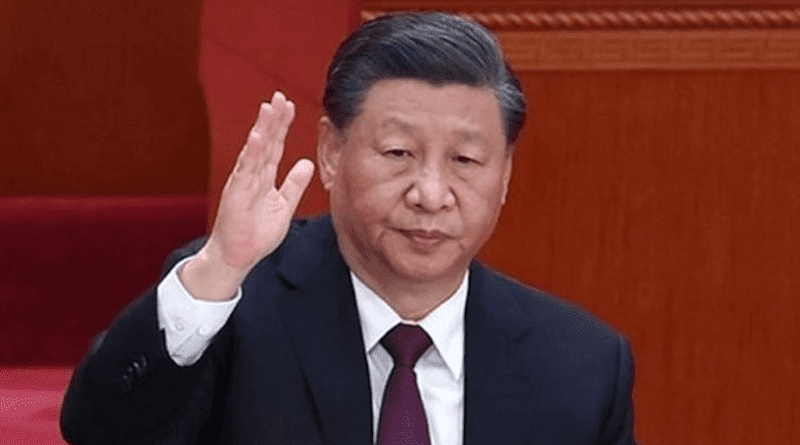China’s Belt And Road Forum: A Window Into Xi Jinping’s Vision – OpEd
By Anwar Iqbal
China recently hosted a two-day global gathering that has been touted as one of the most significant diplomatic events of the year. The Belt and Road Forum in Beijing brought together two dozen world leaders and over a hundred delegations, primarily from the Global South. The central theme of this gathering was China’s signature Belt and Road Initiative (BRI), a global infrastructure project that has transformed China into a major international player. This forum provided insights into President Xi Jinping’s vision for a world that challenges the norms and values upheld by liberal democracies. At the same time, it showcased a growing division between major world powers and cast a shadow over global relations due to the ongoing conflict in the Middle East.
The Belt and Road Forum left no doubt about the prominence of Russian President Vladimir Putin in the eyes of China’s Xi Jinping. The gathering featured a lavish welcome banquet, with Xi and Putin entering the room side-by-side, making it clear who the central figures were. Putin was the first among visiting leaders to deliver remarks at the forum’s opening ceremony. During his three hours of bilateral meetings with Xi, Putin emphasized the close alignment between Russia and China. Both leaders perceive common threats that strengthen their interaction. Notably, they have called for a ceasefire in the Middle East, unlike the support for Israel from Europe and the US. The Xi-Putin partnership demonstrates their shared belief in pushing back against what they see as a US-led world order working against them.
The Belt and Road Forum highlighted the deepening divisions among major world powers. However, unlike the previous BRI forum, fewer world leaders attended this event, particularly those from European countries. Skepticism about China’s global ambitions has grown in Europe, particularly due to Beijing’s economic and diplomatic support for Moscow. Italy, the only G7 member participating in the BRI, is considering exiting the project when its membership expires. Meanwhile, leaders who attended included figures from Hungary, Kazakhstan, Indonesia, and several countries in Africa, Asia, and Latin America. Even the Taliban, not widely recognized as Afghanistan’s government, sent a delegation. Many leaders expressed their hopes for sustainable development in their countries and called for a more cooperative, multilateral world. Xi’s speeches subtly criticized what China perceives as the United States’ efforts to maintain dominance and suppress China’s rise.
The ongoing conflict in the Middle East cast a shadow over the forum, with news of a devastating blast at a Gaza hospital. However, the situation was largely absent from discussions at the event, with no national leaders raising the conflict during the opening ceremony. UN Secretary General António Guterres did mention the situation and called for an immediate humanitarian ceasefire, emphasizing that Palestinian grievances cannot justify the collective punishment of the Palestinian people. Xi, in a meeting with Egypt’s representative, called for a ceasefire and a two-state solution, demonstrating China’s interest in playing a constructive role in resolving the conflict.
The forum also shed light on the next phase of the Belt and Road Initiative as it enters its second decade. The program has played a significant role in helping developing nations build essential infrastructure. However, it has faced criticism for burdening countries with debt and having adverse environmental impacts. Chinese officials emphasized a shift toward “high-quality” development in the initiative’s next chapter, focusing on the digital economy and sustainable “green development.” While questions arose about China’s funding for major infrastructure projects, Chinese Foreign Minister Wang Yi suggested that China would continue to be a major player in this space, highlighting the quantity of China’s global development projects and expressing confidence in their capabilities.
The Belt and Road Forum has provided a glimpse into China’s growing global influence and the strategic partnerships it is forging, particularly with Russia. It also reflects the evolving dynamics of major world powers and the changing attitudes of European nations towards China. The forum’s subtle criticisms of the US and the deepening divisions between major world players underscore the complexities of contemporary geopolitics. The shadow of the Middle East conflict further highlights the urgent need for diplomatic efforts to resolve one of the world’s most pressing issues. As China continues to emphasize high-quality global development through the BRI, its role on the world stage is set to evolve and shape the future of international relations.

